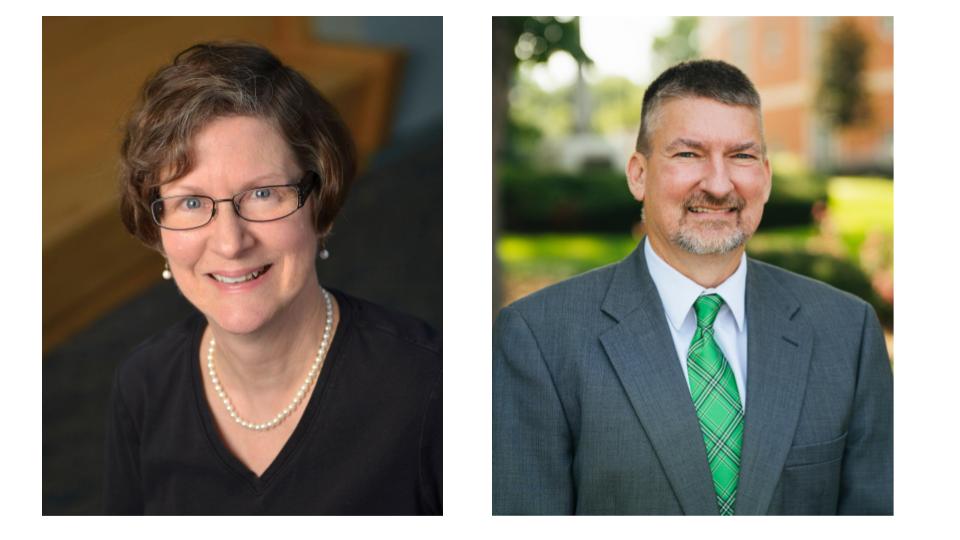We recently sat down with Marshall University’s Dr. Mary Beth Reynolds, Associate Provost and Associate Vice President for Assessment and Quality Initiatives, and Brian Morgan, Vice President for Institutional Research and Planning and Chief Data Officer, to discuss accreditation and data literacy on college campuses. In that conversation, we covered a wide range of topics surrounding accreditation and data, and there was one salient point that our experts continued to emphasize: Accreditation is an all-hands-on-deck endeavor that requires an ongoing commitment to data collection and analysis.
DataU: Unlocking Academic Excellence
Accreditation requires colleges and universities to report on a wide range of criteria, such as mission alignment, student performance, integrity and ethical practices and more. At the heart of all this reporting is data. “Accreditation is so important, it has to be driven by something, it has to be driven by results, but how do we know we’re making those results? Well, we have our data,” explained Morgan.
But where exactly does this data come from? Many sources are internal; Faculty create and measure student learning outcomes in the classroom, Financial Aid develops reports on the amount of aid students receive, Student Activities reports on the number of students attending campus events, and so on. However, in addition to internal reports, colleges and universities rely on external sources of data.
“It’s come to a point now, where an institution cannot just rely on the data that sits inside their walls, they cannot just look at student information systems, they cannot look at their alumni database, but they need data from other groups. So not just the Department of Ed, but companies like Steppingblocks. Steppingblocks has already provided graduate outcomes data that’s been looked at by our deans, the assessment office, academic affairs, and the alumni office are trying to find just where our graduates are after our surveys end,” says Morgan.
This level of data collection and reporting requires continuous participation from faculty and staff across campus, which can be challenging to manage. At Marshall, Dr. Reynolds and Morgan have developed strategies and initiatives for getting everyone on board.
Dr. Reynolds explains that when working with department chairs on their program reporting, it’s important to meet folks where they are, and help them develop actionable plans. “I always start with the premise that we start where we are, and we make improvements where we are.” Dr. Reynolds works with faculty to develop learning outcomes, map those outcomes to the larger Marshall curriculum, and make a plan for implementation. “You have to make a good plan before you can implement it.”
She also encourages faculty to work together to share ideas and encourage one another. “Obviously there are some programs that do a better job with assessment than others. Having them serve as ambassadors helps, for one thing, because they can talk to colleagues.” Not only does teamwork allow for idea sharing, but it also builds a culture of assessment and data collection across campus.
In building this culture of assessment, it is important that people across campus have a shared language and understanding when it comes to interpreting the data. Morgan explains that this can be a hurdle for folks across campus who are collecting and reporting data: “The biggest challenge is making sure that data literacy component is there, and that they know what their data actually means.”
To help increase data literacy on campus, Morgan shared a few initiatives that his team at Marshall has developed. Starting this Spring, Morgan will host data literacy training sessions for faculty and staff, where people can come and ask questions about data at Marshall. In addition, Morgan’s team has worked on creating a searchable database where staff can find data reports on a number of topics that are consistent and easy to understand. The team is also developing a data dictionary that outlines terms that are used in Marshall reports, and explains how the data is calculated and analyzed.
As Dr. Reynolds states, “accreditation is important, is required, to ensure the quality of the education that students receive.” Data is a crucial part of the accreditation process, and essential to ensuring that students are getting a return on their educational investment.
Morgan explains, “It’s not just to make sure we’re going through the motions, it means something. It means something to recruit our next generation of students, it means something to our past generations of grads to make sure we’re keeping up that academic rigor that makes their degree that they’ve earned in the past from Marshall University continue to mean something.”
How are you leveraging data to ensure institutional success?
Data is powerful tool in tracking an increasingly mobile alumni population, reporting graduate outcomes, developing effective alumni engagement strategies, and telling impactful stories. With data, higher education can demonstrate the value they have on the lives of students and our global workforce.
DataU: Unlocking Academic Excellence
Interested in how you could leverage Steppingblocks? Explore now.



